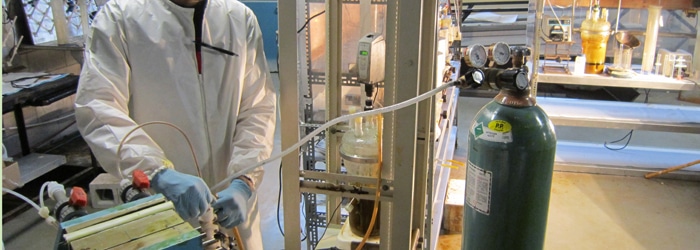Scoping Tests are intended to delve into the preliminary analysis and technical comprehension of a specified ore’s composition, to distinguish each of several possible extraction pathways that may be practicable, and to produce and outline an eventual (to be further optimized) process flowsheet. These results could then be analysed and modelled into a preliminary schematic process diagram, in order to find the most efficient conditions for an eventual scale up.
An important aspect of the scoping trial is to explore in depth the mineralogical aspects of the property as a whole, determine its metallurgical conditions and broad operational parameters, and ascertain that they are consistent with the given homogeneous sample & feed material. Its primary purpose is to achieve a precise set of experimental data from which to derive the optimal methodologies to the extent possible at this preliminary state. The accuracy of data collected at this beginning stage is critical to determining successful economics of the eventual mineral recovery from the ore.
These scoping programs also provides the foundation from which to embark on derivation of the process flowsheet, energy balance model and general economics of upcoming metallurgical feasibility. These series of initial testwork provide essential determining factors to assist identifying precise metallurgical extraction percentages, purity level, as well as an encompassing overview of what can be expected in progression to the next scale up to a defined commercial project.
